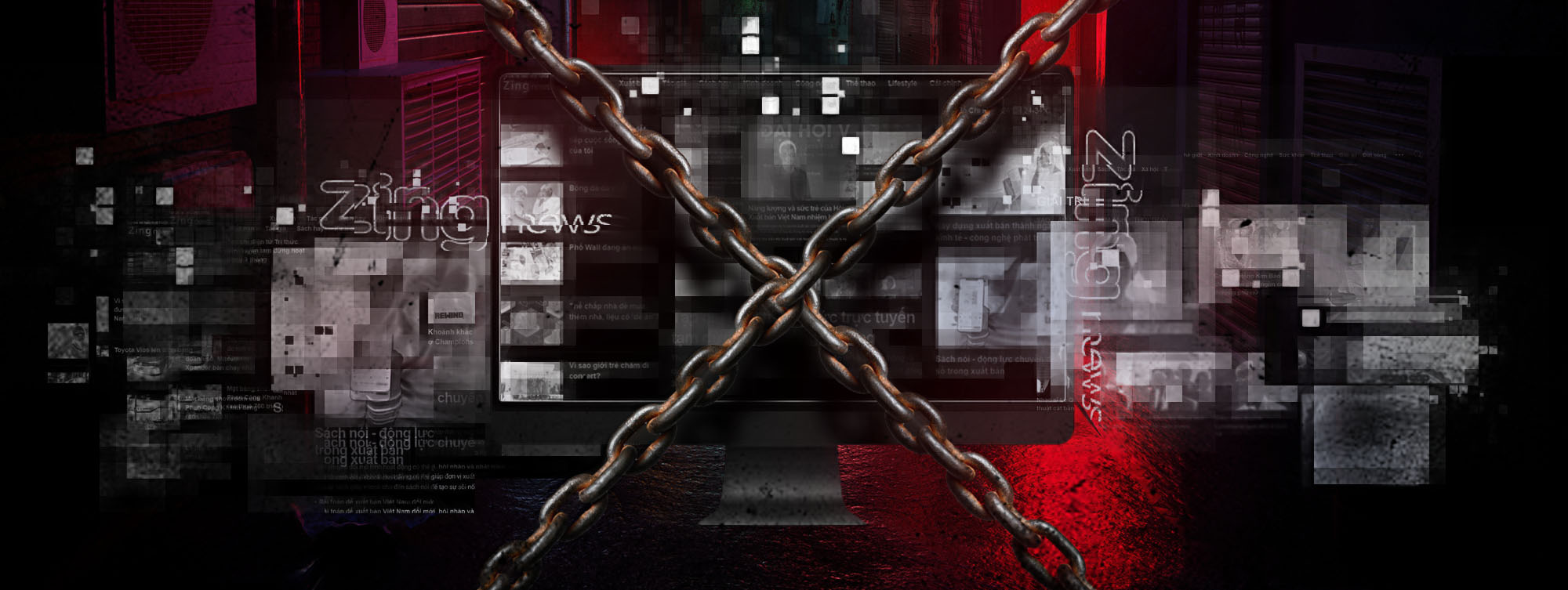|
Getting your Trinity Audio player ready...
|
It’s supposed to be one of Vietnam’s newest publications, but Z news — Knowledge Online Magazine (Tạp chí tri thức điện tử) feels familiar to many locals — and with reason. Its launch last December marked the official end of Zingnews, a once popular online magazine that catered to Gen Z, with light topics that ranged from entertainment and travel, to technology.
Z news targets the same audience and offers topics similar to Zingnews. It is also owned by the same company, Vina Game Corporation (VNG) and, like Zingnews, subsumed under the Vietnam Publishing Association.
But it does have a different logo, website, and social media channel than what Zingnews had.
Even though its suspension was not extended, Zingnews’s owners had apparently thought it wiser to just have a fresh start. “Without changing the appearance, it would be very hard for Zingnews to operate again,” said a Ho Chi Minh-based journalist who asked that her name be withheld. (An unwritten rule stipulates that state-affiliated journalists have to ask for permission from their superiors when speaking to international media.)
Zingnews was founded in 2008. At its peak, its social media, including its website, would have between 12 and 14 million visits altogether per day. When it was slapped with a three-month suspension last July, its website was garnering as many as 96 million visits a month. Yet while the suspension itself was not really a surprise — “suspensions are not new in Vietnam,” one journalist commented — people are still puzzled over why Zingnews suffered such a fate.
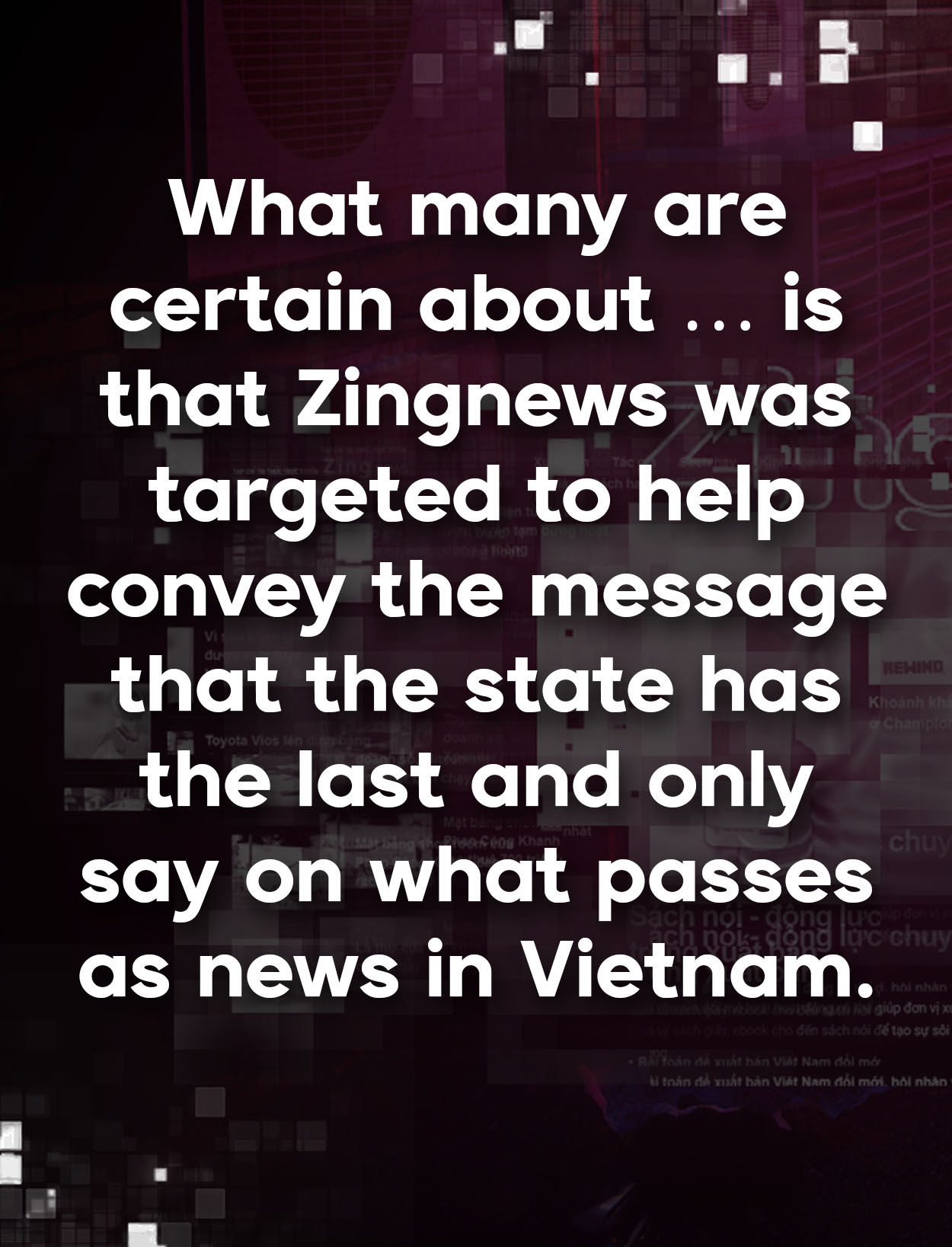 Operating in an environment where the Communist Party of Vietnam (CPV) holds a monopoly over media, Zingnews had affiliations with the state and fell under the purview of a de facto state agency. Unlike other major outlets that had previously faced penalties for exposing wrongdoings of CPV members, discussing politically sensitive issues, or adopting a bold tone toward policy makers, Zingnews focused primarily on youth-related content and entertainment. To observers and Zingnews insiders, it was toeing the line and compliant with established regulations.
Operating in an environment where the Communist Party of Vietnam (CPV) holds a monopoly over media, Zingnews had affiliations with the state and fell under the purview of a de facto state agency. Unlike other major outlets that had previously faced penalties for exposing wrongdoings of CPV members, discussing politically sensitive issues, or adopting a bold tone toward policy makers, Zingnews focused primarily on youth-related content and entertainment. To observers and Zingnews insiders, it was toeing the line and compliant with established regulations.
And so when Zingnews was suddenly suspended and fined VND 243.5 million (US$10,300), many were left scratching their heads. Those in the media, however, have been taking the incident as yet another indication of a stealth state crackdown on bottom-up “newsization (báo chí hoá)” in Vietnam, which they believe is aimed at tightening the CPV’s control over the sector. Consequently, journalists say that, more than ever, they are watching what they say and write.
However, no one is quite sure what “newsization” really means. What many are certain about, though, is that Zingnews was targeted to help convey the message that the state has the last and only say on what passes as news in Vietnam.
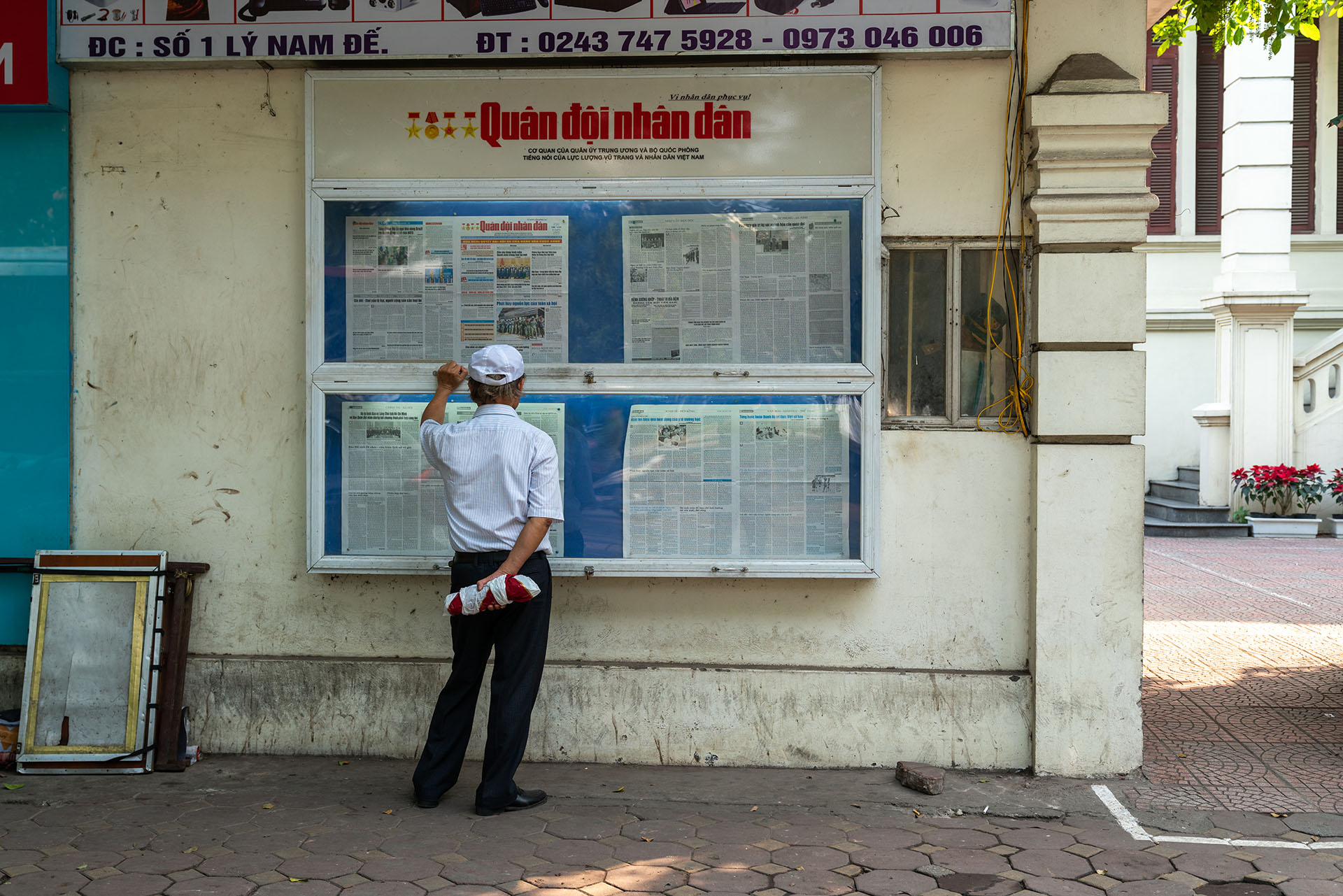
‘Newsization’ sensation
In recent years, “newsization” of magazines (báo hoá tạp chí)’ has been used to describe a situation in which an outlet holds magazine licenses but ventures to publish news articles covering various fields and current affairs. That is the simplest explanation for what happened to Zingnews, at least officially: it was penalized for not adhering to its original registration, because an outlet registered as a magazine is not allowed to publish news.
According to an article in People’s Police, a news outlet under the Ministry of Information and Communications, Zingnews’s newsization had continued unabated. “The situation of publishing a significant proportion of articles that do not adhere to the stated purpose is prevalent,” it said, “accounting for over 80 percent of the total number of articles, particularly in July 2022, where this ratio reached 90.26 percent.”
The same article also emphasized that Zingnews had committed numerous wrongdoings, including publication of unverified news without correction, as well as publishing articles beyond its remit, despite repeated previous warnings from the Ministry of Information and Communications.
Above all, said the article, Zingnews exemplified the newsization and privatization in media news activities, as indicated by Decision 1418 issued by the Ministry in 2022.
The Decision sets criteria on the newsization of magazines, social news-aggregator websites, and social networks, and signs of privatized journalism. Notably, it does not contain any punitive measures. Yet Zingnews was penalized anyway.
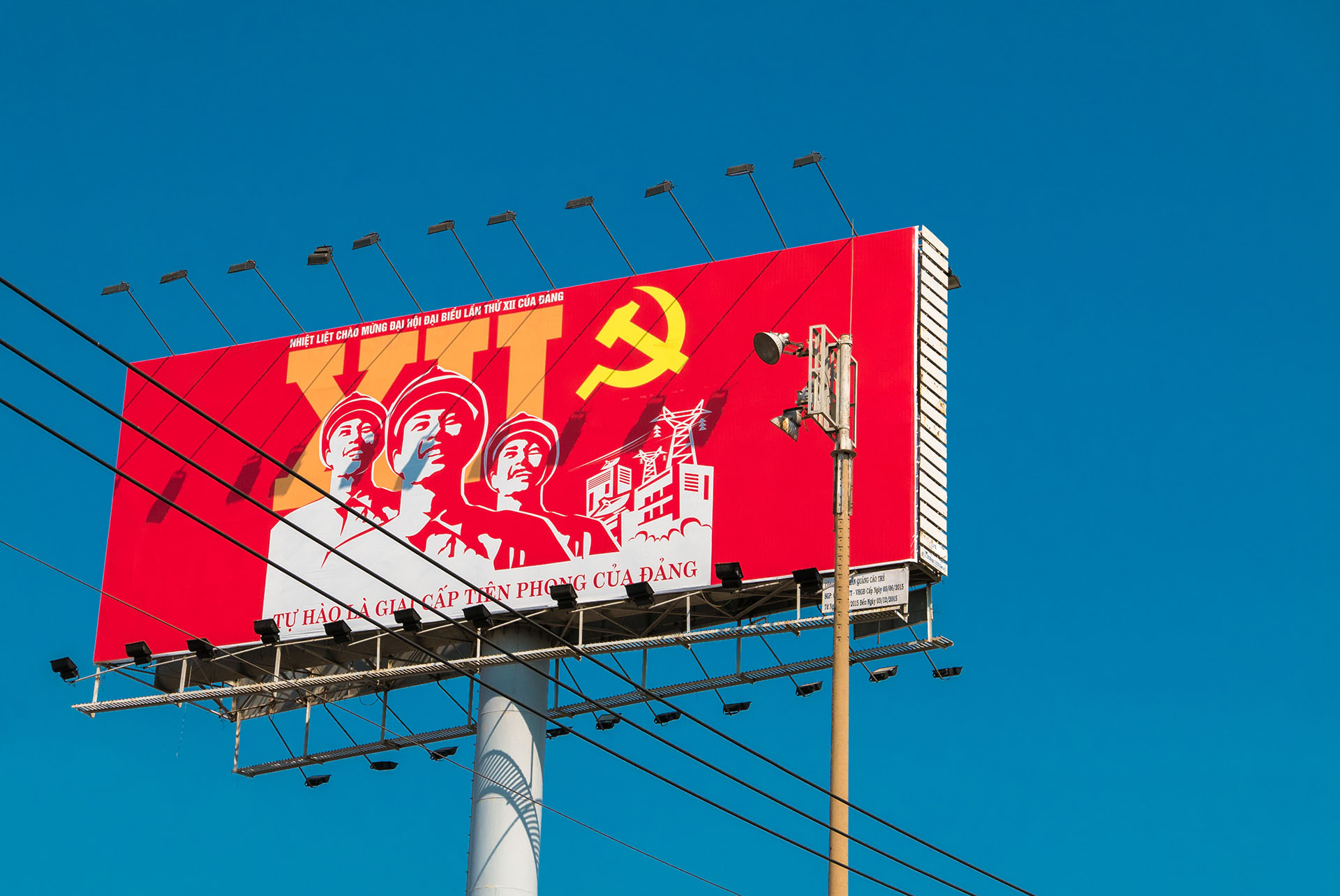
Initially, it was still free to publish news. Being owned by a tech company, Zingnews was at the vanguard of applying technology to journalistic activities. But it was forced to change its license as part of the National Press Development and Management Planning until 2025 that was approved by a Prime Minister’s Decision in 2019 — the same year when the Cybersecurity Law went into effect.
In concrete terms, by April 2020, Zingnews was no longer a news outlet, but rather an online magazine, because its supervising body is only a social organization. Eighteen other media outlets met similar ends.
According to the Plan, social-professional organizations would only be allowed to publish magazines and not newspapers. The decision contradicted Article 14 of the 2016 Press Law, which states that every legal entity is allowed to have its own news outlet.
According to some academics, they have had headaches trying to make sense of what happened to Zingnews. But something similar has been happening to the non-profit sector, they said.
“How come Zingnews outputs were considered journalistic products but then it got punished for newsization?” one academic at the Vietnam National University in Hanoi asked. “In the same vein, how come NGOs are penalized for tax evasion, when they are not supposed to pay tax?”
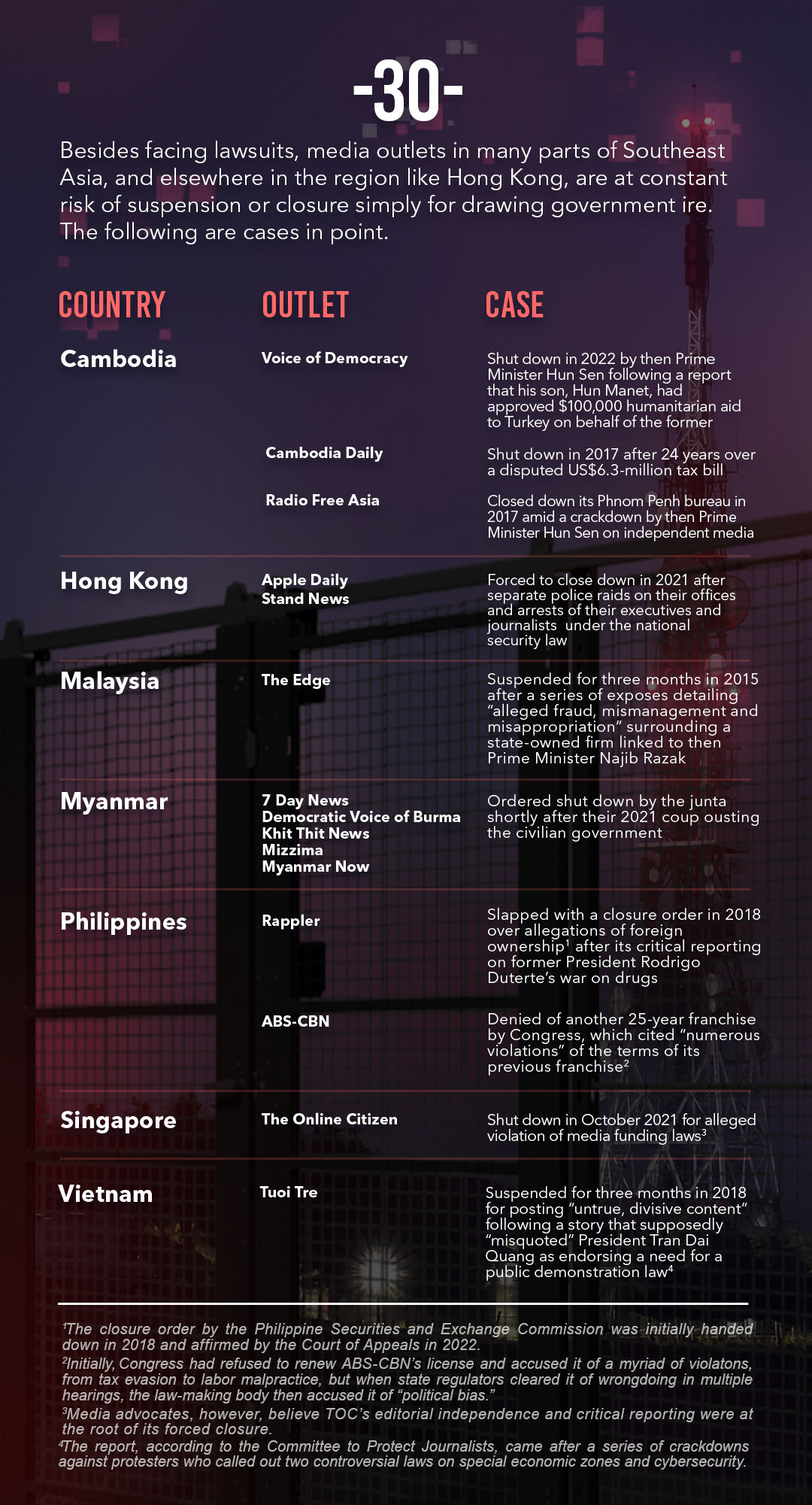
Securing the gag on media
In its Global Expression Report 2023, international human rights group ARTICLE 19 said the state of freedom of expression in Vietnam is already deemed to be in crisis.
Vietnam ranks 178th out of 180 surveyed countries in the 2023 Press Freedom Index produced by Reporters Without Borders (RSF), ahead of North Korea and China, making the Southeast Asian country one of the most dangerous places to practice journalism.
In the 2023 census by the Committee to Protect Journalists, Vietnam ranks the fifth worst jailer of journalists (with a total of 19 journalists in prison), behind China, Myanmar, Belarus, and Russia.
At present, Vietnam’s highly controlled media sector employs 41,000 people. As of 2022, the country had 127 newspaper agencies, 670 magazine agencies (including 327 political and scientific journals, 72 literary and artistic magazines), and 72 radio and television broadcasting agencies nationwide. Not all of them, however, are authorized to produce and publish news.
Article 5 of Circular 19/2009/TT-BTTTT allows joint operating activities in broadcasting provided they do not relate to political and current news events and do not exceed 30 percent of daily programming time.
The rules regarding newsization somehow had a predecessor. In 2013, a decree was issued limiting the use of blogs and social media to “providing or exchanging personal information” and prohibiting such platforms from sharing news or information from government sites.
Article 1 of the National Press Development and Management Planning until 2025 also leaves no doubt on the role of the media in Vietnam: “The press is the means of information, a tool of propaganda, and an important ideological weapon of the Party and the State. It is the forum of the people, placed under the direct and comprehensive leadership of the Party and the management of the State, operating within the framework of the Constitution and the law.”
Seeing Zingnews being punished despite toeing the line chilled journalists even further, pushing them into self-censorship. That in turn turned people away from traditional media and onto social media.
Media silence on death-row cases, for example, has been strongly felt. In September last year, the lawyer of Lê Văn Mạnh, who had spent 15 years on death row after being arbitrarily convicted of rape and murder, had to take to social media to announce his client’s execution. No local media outlet picked up the story despite international appeals for a reinvestigation of Lê Văn Mạnh’s case, following his claims that he had been tortured into confession.
News about the death last November of Buddhist monk Thích Tuệ Sỹ, a prominent religious figure in Vietnam, was also largely absent in domestic media. Though Buddhism plays a significant role in Vietnam, Thích Tuệ Sỹ was a member of an independent Buddhist movement not recognized by the CPV. Tuổi Trẻ, Vietnam’s largest daily, published a short piece of news on his death, however, indicating such content is not necessarily taboo.
Asked about the atmosphere in newsrooms nowadays, a former part-time employee for Zingnews said that articles are subject to censorship before and after publication. As a result, she said, journalists are “scared” to make a bold step. She added that she now has to think twice even about writing freelance for international projects. Publishing opinions of international organizations that might contradict official views could put her at risk as well, she said.
The staff at Z news are probably as jittery as she is, if not more so, even though the word tạp chí (magazine) has special prominence on the online publication’s website and its column topics no longer include politics.
Speculations are rife that Zingnews was but a victim of its own immense popularity. Still and all, it’s hard to explain the fate that befell the defunct online magazine.
“One may never know exactly what happened,” remarks a well-known Vietnamese scholar on cultural studies, who used to work in Vietnam as a journalist. “The newspaper I used to work for was suspended for two months, for a reason completely different from what we announced to the public.” ◉










